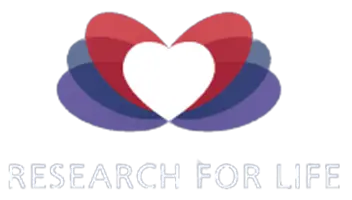
The Benefits of Donating Your Body to Science
There is no doubt that anatomical donation is a benevolent gift that has the power to advance medical research and impact the quality of medical care and breakthroughs for generations to come. But, are there other reasons why someone would want to donate their body to science?
Reason #1: Donating a body to science saves lives.
When a body is donated to science it can help save lives in many ways. Educational institutions use cadavers to help explain anatomy and physiology to medical students. This gives the students the experience they need to understand human anatomy. More importantly, it allows doctors, who throughout their practice, need to stay current with the advancements that result from innovative medical breakthroughs.
Whole body donations are also used by practicing surgeons for surgical training and technique development. Exploring to find better ways to perform procedures like transplants, joint replacements, and minimally invasive surgical techniques.
Having access to cadavers gives all of them the experience necessary to learn how to implant a device in a patient’s spine, heart or brain. Think about it. Wouldn’t you prefer having a surgeon who has practiced a procedure on a cadaver first, before performing it on you for the first time?
Researchers use the human body to not only see how diseases impact a body – they search for causes, which leads to the pursuit for cures. They have discovered reasons why humans develop cancer, they use human brains to help them gain a deeper understanding of how the brain works to help treat brain disorders, and they use the human heart to gain insight into the treatment of heart disease.
EMT’s can gain invaluable hands-on experience in the latest life-saving techniques and technologies, using this fresh knowledge to treat the patients in their communities. Forensic investigations use human bodies to help them identify time of death by studying the decay that occurs to a body over a length of time and to help them learn how a person died.
As a donor, you make this critical education and training possible through your selfless and generous gift.
Reason #2: “Paying it forward.”
Many people choose to donate their body to medical science because they value education, a majority of them are educators themselves. Others become donors because of the medical treatment and care that they personally experienced. They feel that a continual evolution of medical breakthroughs is imperative to improving the human condition and want to do everything they can to support research and innovation.
Reason #3: A no-cost & compassionate alternative to traditional funeral arrangements.
Another compelling reason people select body donation is to relieve their families from the financial and emotional burdens associated with a funeral. Funeral costs are expensive and seem to rise year after year. When an individual registers with a whole body donation program there are, in most cases, no cost for the transportation, cremation and final disposition of the cremains (a person’s cremated remains). Reputable and accredited organizations will treat the donor and their loved ones with the utmost dignity and respect and ensure that their bodies and wishes are honored.
Reason #4: Donating a body to science can help prevent inhumane treatment of animals.
Many modern medical practitioners are moving away from using live animals for research and testing due to the work of animal rights activists. Research indicates that surgeons who work on the human body surpass those who work on animals. The familiarity with the human body makes it much easier for them to translate what they learn to their work with patients.
The gift of anatomical donation has so much to offer every one of us. Those who donate may not realize that they might have helped save hundreds of thousands of lives. While we may never unlock all the mysteries of the human body, there is no question that this selfless gift helps advance research, imparts new knowledge, and spurs innovation.



